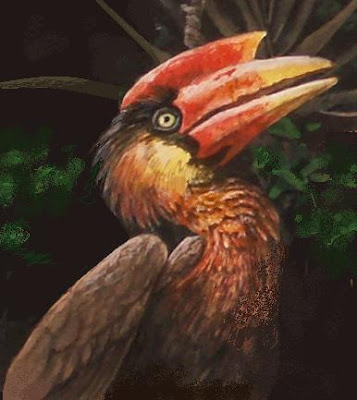ANOTHER BIG BIRTHDAY TODAY

One hundred years ago today, Rachel Louise Carson was born in Springdale, Pennsylvania. Carson began her career as a zoologist, teaching at Johns Hopkins and the University of Maryland. Her academic career was substantially complicated by living during a time when women weren't welcome in academia, and at the same time having to care for an ailing mother, two orphaned nieces and (later) an orphaned great-nephew. In 1936 she took a position with the Bureau of Fisheries, and soon began writing essays on the side. A number of these eventually morphed into her first book, The Sea Around Us, which was published in 1951. The book was very successful, winning the National Book Award, and being made into an Oscar-winning documentary, and she was soon able to quit her job and focus full-time on writing. It was her 1962 book, Silent Spring, that proved to be her real legacy. Silent Spring was a well-researched book focusing on pesticides like DDT, and their unintended effects on the environment. Carson was a skilled and careful writer, and her tone was practical and far from polemic. Nonetheless, she was savaged by the agrochemical industry, threatened with lawsuits, and belittled as an unqualified and hysterical woman. Secretary of Agriculture Ezra Taft Benson (who would later become president of the Mormon church) sided with Monsanto and the boys, and suggested Carson was a Communist. The biological community and the general public, however, took Silent Spring seriously, and the book, more than any other, became the “Bible” of the then nascent environmental movement, and prompted president Kennedy to call for testing of the chemicals she wrote about. On April 14, 1964, Carson died of breast cancer at the age of 56. Eight years later, William Ruckelshaus, first administrator of the EPA, announced a ban on the use of DDT in the United States.
I first read Silent Spring and The Sea Around Us in grade school, and both books had a huge impact on me. Shamefully, I haven't cracked either in at least 20 years. I seem to be in good company in taking Carson for granted. There's still a lot we don't understand about the effects of pesticides, but Americans seem to be no less cautious in using them than they were 40 years ago. The synthetic pyrethroids that once appeared so innocuous have recently been shown to be surprisingly persistent under the right conditions. We all know about the current decline of amphibians, but most of us fail to connect all the dots involved. The pest control industry is still a healthy one, and people who are afraid to drink their own tap water don't think twice about calling on them to annihilate a healthy and innocuous arthropod population. As a Carson birthday tribute, I counted the people applying chemicals to their yards on my trip to the Post Office yesterday. I rode past six of them.
 There's even a widespread misconception that the worldwide DDT ban has increased the danger of malaria in the tropics. Actually, the worldwide DDT ban prohibits only agricultural application. It is still commonly and effectively applied to indoor walls and bednets to deter Anopheles mosquitos, which in general are less resistant to the chemical than they would have been without the ban. We should thank Rachel Carson every time we see a wild Peregrine, Bald Eagle or Brown Pelican fly overhead. The recovery program for California Condors (Gymnogyps californianus) would have never had the chance to work had DDT application not ceased. Last week, I watched in awe as one of these massive birds slope soared above me—my first glimpse of the species in the wild. In all the excitement, Rachel Carson never entered my mind.
There's even a widespread misconception that the worldwide DDT ban has increased the danger of malaria in the tropics. Actually, the worldwide DDT ban prohibits only agricultural application. It is still commonly and effectively applied to indoor walls and bednets to deter Anopheles mosquitos, which in general are less resistant to the chemical than they would have been without the ban. We should thank Rachel Carson every time we see a wild Peregrine, Bald Eagle or Brown Pelican fly overhead. The recovery program for California Condors (Gymnogyps californianus) would have never had the chance to work had DDT application not ceased. Last week, I watched in awe as one of these massive birds slope soared above me—my first glimpse of the species in the wild. In all the excitement, Rachel Carson never entered my mind._____________________
upper: Rachel Carson Photograph from Corbis-Bettmann. Swiped from internet
lower: Dreadful California Condor photos taken by CPBvK in Coconino Co, AZ May 15, 2007






4 Comments:
Thanks for that post. I only wish that NPR would start to recognize the birthdays of people like Carson, rather than celebrities from Hollywood.
Some interesting background on the story behind the 'banning DDT = African holocaust' at Deltoid and . The argument they make is that Phillip Morris used the story as a diversionary tactic to get in the way of WHO anti-tobacco efforts.
Whoops - previous comment previewed OK - dunno how I screwed it up...
I have also been influenced by Rachel Carson's books and findings. I am one of few here in Kansas that does not use pesticides or fertilizers. We go "organic". We have a lot of wildlife too, owls,buzzards, red and grey foxes, opposums, Raccons, cotton mouth snakes, chipmunks and squirels, deer, red shoulder hawks, etc.. I keep telling my neighbors to stop using pesticides. One has stopped and one across from me is changing his grass for dirt and plants instead! Hurrah!
I have a little album with pictures of "most significant earthlings" ex: Ghandi, Darwin, Montessori, Mendelson, Captn. Cook, O'Keefe, Adams, etc... and she is in it too. I open it every now and then and talk about those helpful people and their influence in our world with my children.
Post a Comment
<< Home